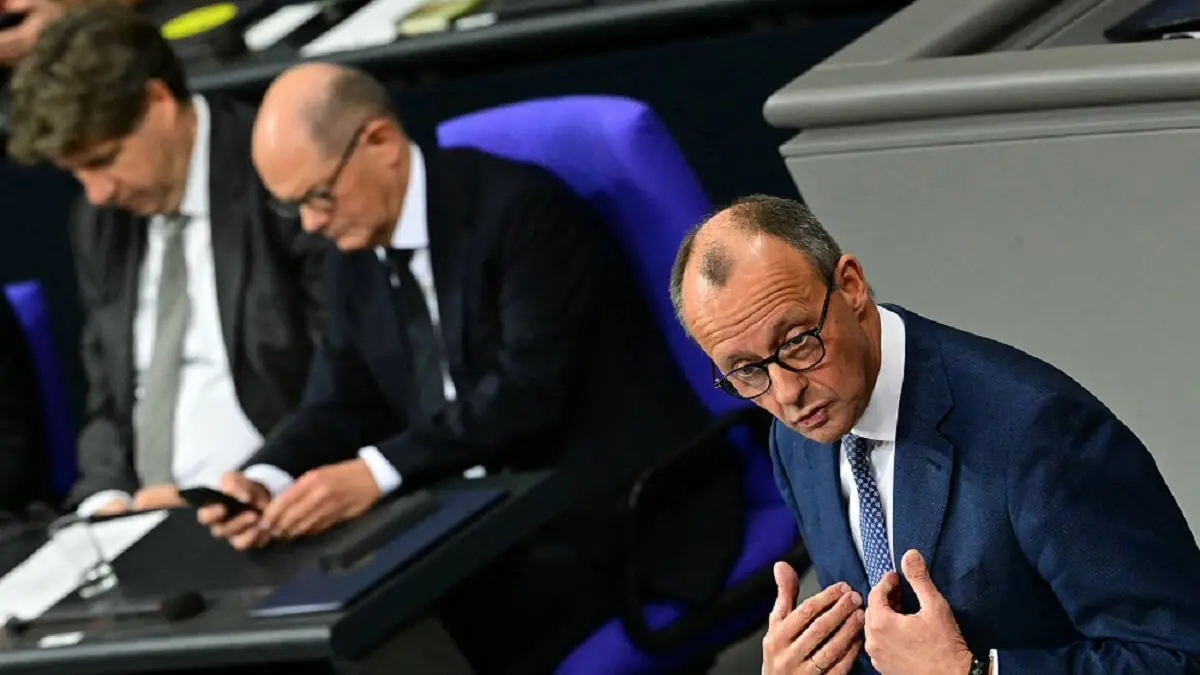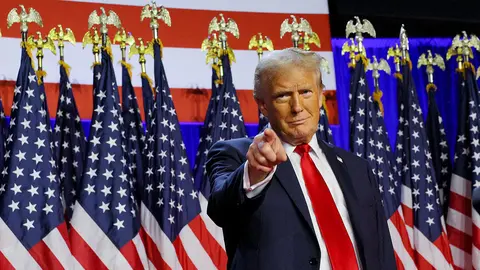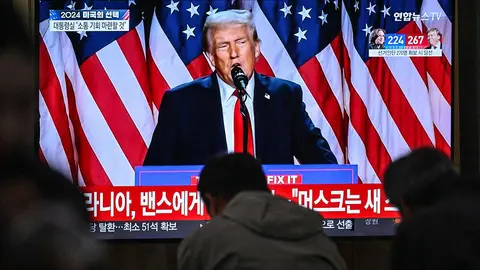Merz promises to make Germany... and Europe great

The 69-year-old leader of the Christian Democratic Union (CDU), Friedrich Merz, did not even take twenty-four hours to outline the broad outlines of his programme and threaten Russian President Vladimir Putin over Ukraine.
Merz's sudden burst onto the front line of the political chessboard has surprised not only German citizens and future voters, but also European leaders and even the incipient US government, which is already putting together its president-elect, Donald Trump. If he still has doubts about which phone number he should preferably dial to talk to Europe, he can write down that of Merz, who is ready to be his counterpart, or the last of his shoe, on this side of the Atlantic.
To begin with, Merz has not waited for Trump to ‘end the war in Ukraine within 24 hours’, as he has promised as soon as he sits in the White House Oval Office, and, in an interview with the weekly ‘Stern’, has announced to Putin that, should he win the next elections, he will receive an ultimatum [from Berlin] to stop bombing and attacking Ukraine.
In case of refusal, Merz would lift restrictions on Ukraine's use of long-range missiles on Russian territory. These weapons could be Tauruses, which would then be transferred to Ukraine from German territory. This has been one of Ukrainian President Volodimir Zelenski's most insistent requests to NATO, and one that the declining Chancellor Scholz has always opposed.
The issue will be one of the hottest topics in the German election campaign that has already begun, and of course in relations between the new US administration and its European allies for the time being. For Trump and his followers, Europe is no longer the main focus of their international concerns - it is now the Indo-Pacific region - while the European Union is staking nothing less than its very existence on Ukraine.
As for the other major issues on his agenda, Merz makes no secret of his determination to see Germany regain its role as a major European power and locomotive, while dismantling the ecological and energy preferences of Scholz's ‘traffic lights’, and to adopt stricter controls on illegal immigration and the huge social benefits it provides.
Although the first polls already show Merz with a comfortable victory with more than 32% of the vote, he will nevertheless need the support of at least one other parliamentary force to form a government.
This will certainly not be the Alternative for Germany (AfD), according to Merz himself, even though these same polls give the far-right party up to 19 %, which would make it the second force in the Bundestag. It would then have to do so with the liberal FDP of the dismissed finance minister, Christian Lindner. However, Merz demands that they get at least 7-8% of the vote to sit down to negotiate, and moreover ‘not votes at our expense’.
To dispel other vitally important doubts, the CDU leader has redoubled his pro-European faith and his firm commitment to a Germany and an EU with great weight on the international stage, promising to ‘do everything possible to place ourselves at the centre of Europe and to exercise leadership with and for Europe’.
This leadership will be firmly linked to the triumph of freedom, ‘which can only be found in open, liberal and democratic societies’. An undoubted nod, then, to Ukraine's struggle against Putin's Russia, before proclaiming, paraphrasing Trump, that ‘we can make this continent great’.
Convinced of the validity and strength of Christian Democratic values, Merz promised to win back with them all those young people who, mired in pessimism and depression, thought they had found a way out by voting for the extreme right.
Although Chancellor Scholz, in his last speech to the Bundestag, tried to leave the door open to a possible SPD coalition with the CDU after the February elections, Merz responded with a resounding dialectical slap in the face: ‘You live in your own universe,’ he told him, ‘and you don't understand what is happening in this country at all. You are the one who polarises it and who is to blame for getting Germany into this situation. You keep making [legislative] proposals as if you still had a majority. Well, you must realise that you no longer have a majority, even if you don't want to accept it’.
His political opponents have caricatured Merz as a man ‘too closely connected to financial interests’, although they have not been able to attribute any scandals to him. The CDU leader, who makes no secret of the honest origins of his large fortune, is a staunch defender of entrepreneurs, large and small, as creators of wealth and jobs, and of German and foreign investors, ‘to whom this government [of Olaf Scholz] has done nothing but create obstacles and difficulties’. To all of them he promised to lay the foundations for them to believe in Germany again by investing their capital in projects for the future.



